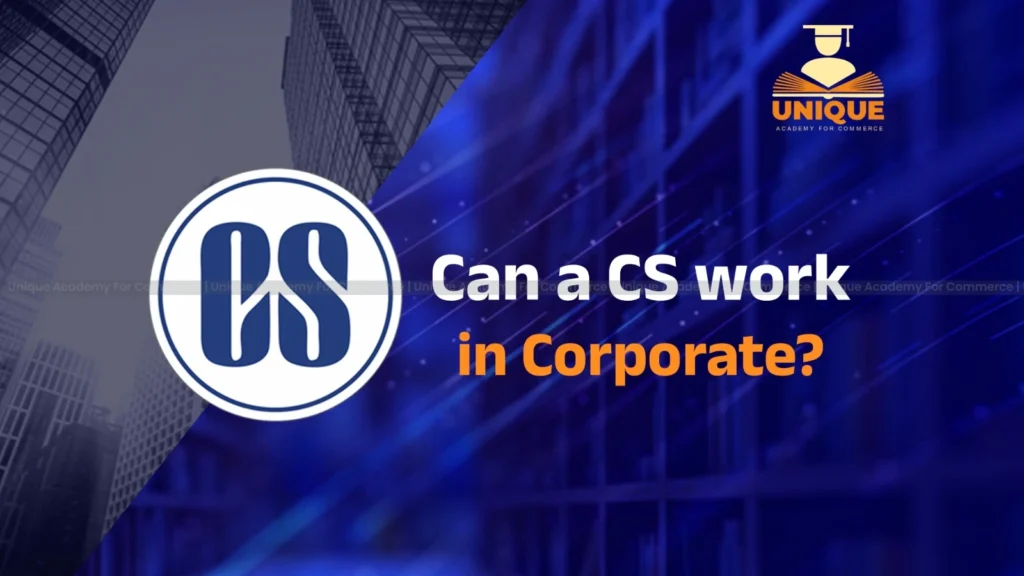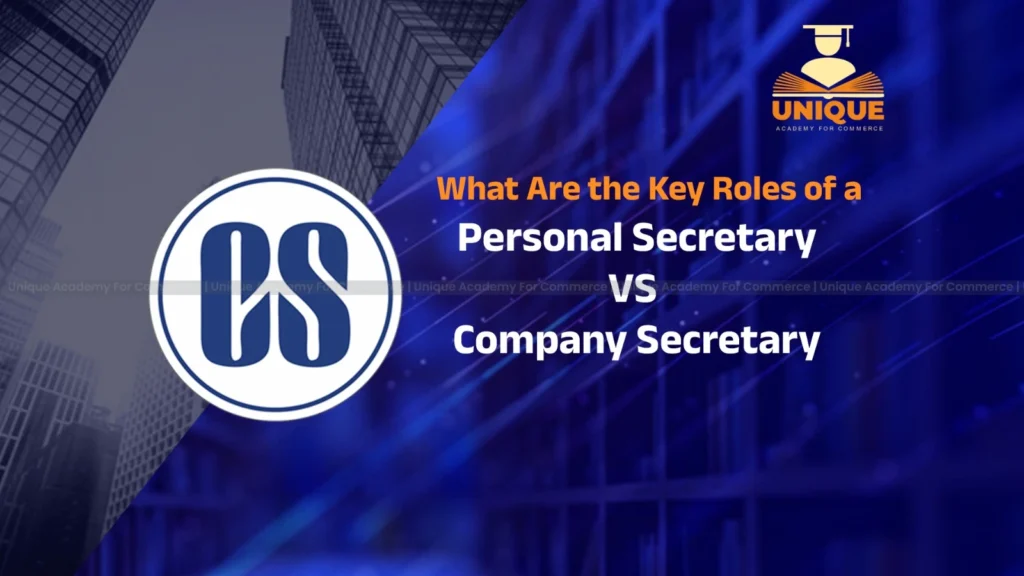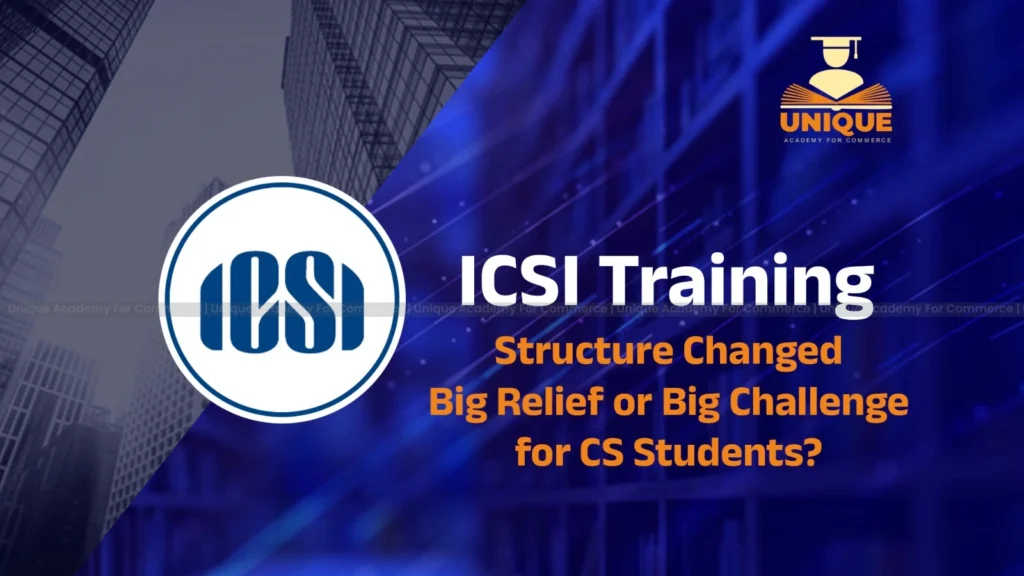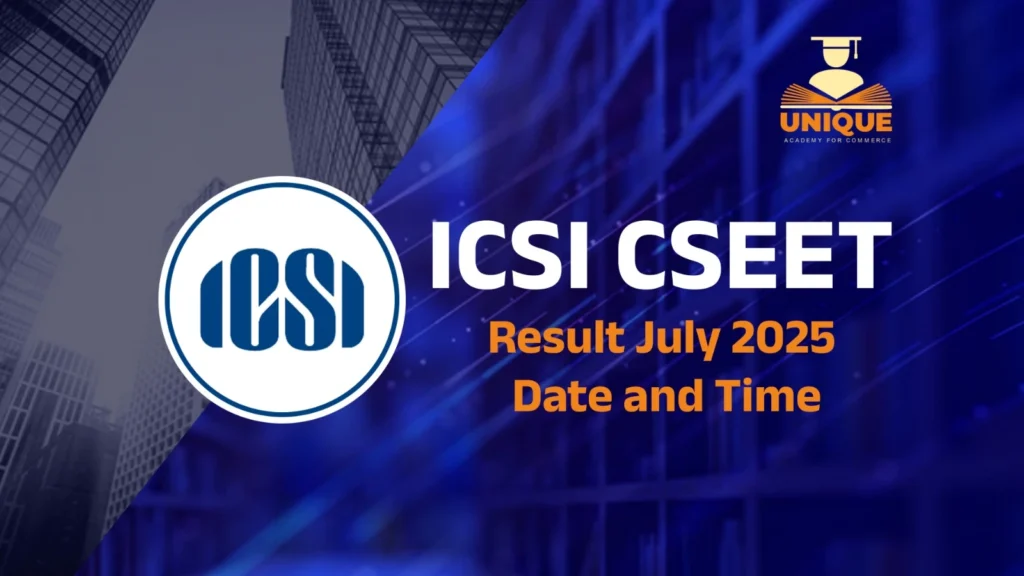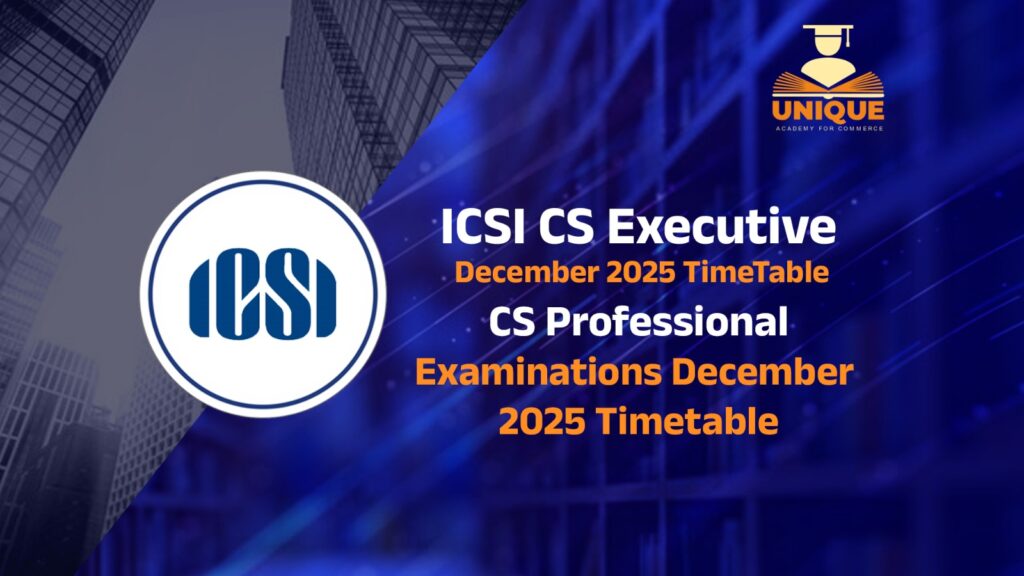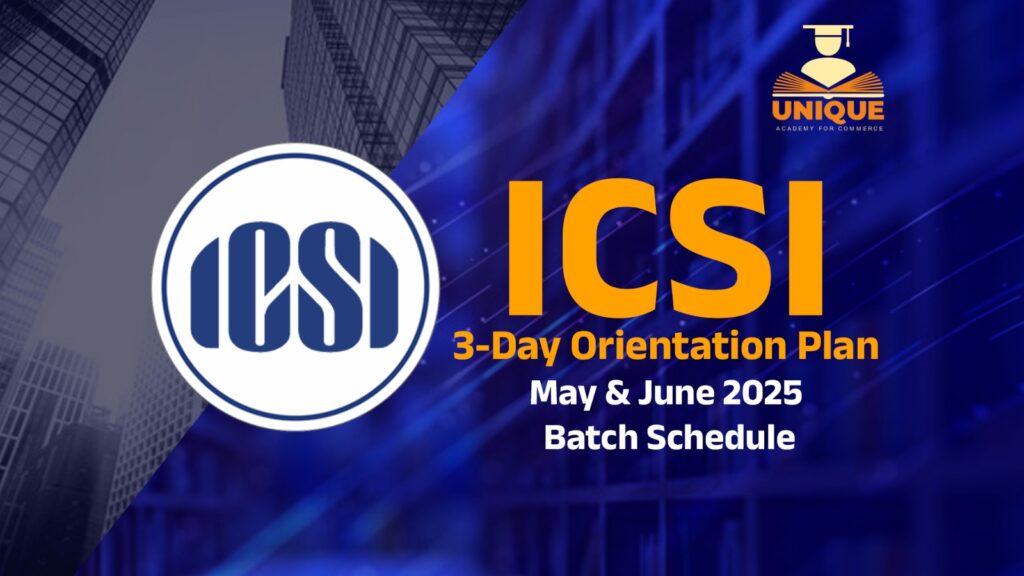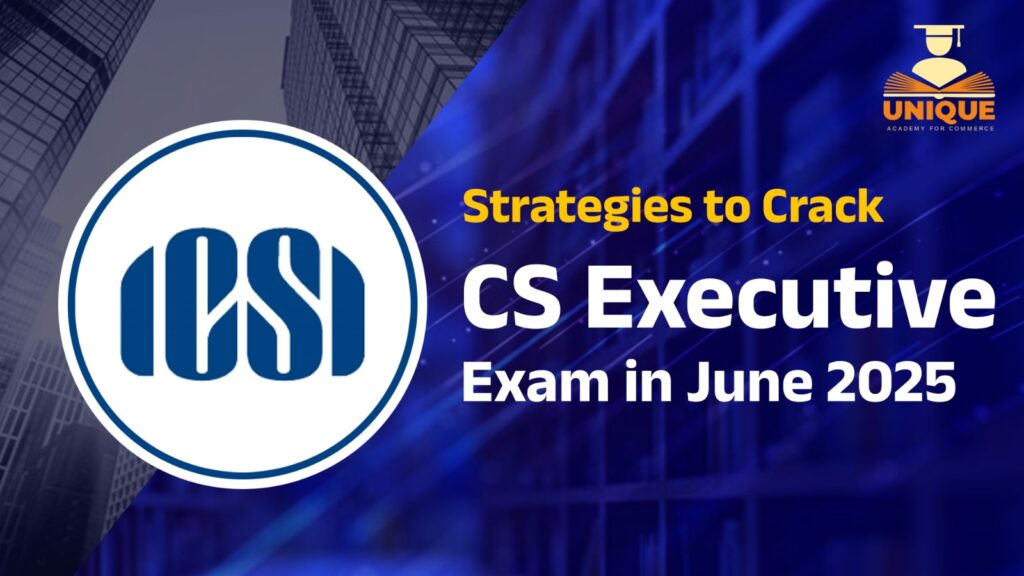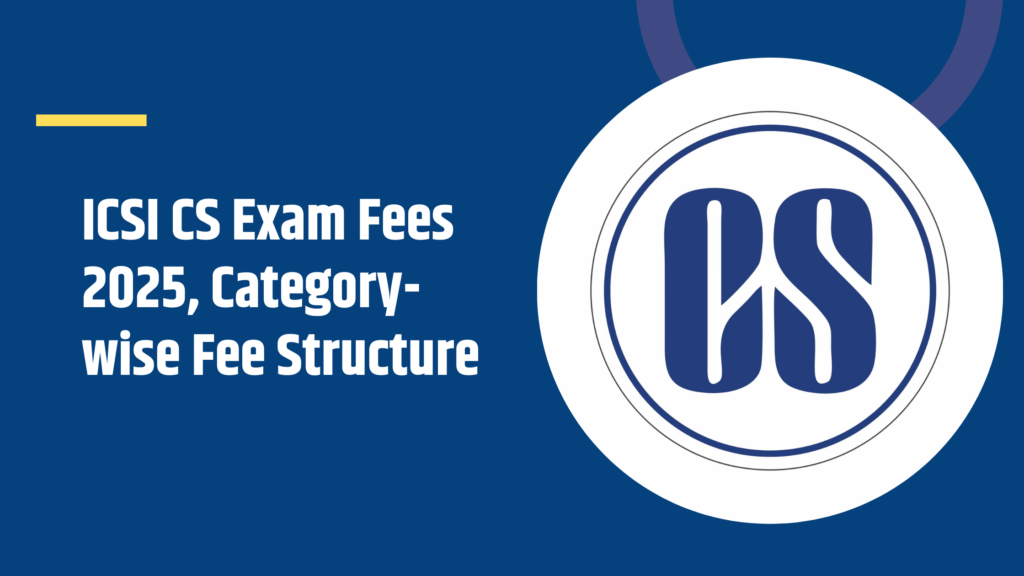How to Prepare SBEC CS Executive (Setting up of Business Entities And Closure)

There is no doubt that while preparing for CS Executive, a student has to review a plethora of laws and legal regulations. This subject makes the students understand the basics of business laws.
But at the intermediate stage i.e. at the executive stage this subject is introduced to provide the working knowledge and understanding of the various procedural requirements involved in the setting up of business entities and overview of procedures involved in closure of entities to the students.
We all know that with the recent advancements around the globe, our economy has proved to be quite productive when it comes to achieving GDP and National Income. While facing Pandemic also, some business entities have been able to restore their profits and revenue numbers well. But this would not have been possible if there had not been variety in the business structures being operated in the country.

There are various business structures such as Companies, LLP, Trusts, and Societies etc. which one can choose to start a business. Choosing a form of business entity is crucial to a successful organization. The choice of a business entity will depend on an object, benefits, size of the business of such entity and many other factors.
The main types of business entities in India are Sole Proprietorship, Partnership, Hindu Undivided Family (HUF) Business, Limited Liability Partnership (LLP), Co-operative Societies, Branch Office and Company which may be any kind of company including one person company (OPC), private limited company, public limited company, company limited by guarantee, subsidiary company, statutory company, insurance company or unlimited company, company formed under section 8 of the Companies Act, 2013 or under section 25 of the earlier Companies Act, 1956.
Various laws are applicable for proceeding to incorporate a business entity. Initial Registrations like Shops & Establishment, FSSAI, ISO, MSME, copyright, patent etc. and licenses from the regulatory authorities like RBI, IRDA, GST, Income Tax, IPR etc. need to be obtained. In this scenario of various options for the kind of business entity and the plethora of laws applicable to the businesses, it becomes quite crucial to know and understand the laws associated with a particular form of the business in order to initiate successful setting up of the business and prolific closure, when preferred to serve the best end of all the stakeholders.
Knowledge of legal regulations is not only important for the CS students for clearing the examination but also it is important from the perspective of understanding the impact on implementation of such regulations while conducting business.
The CS fraternity has been vested with the core responsibility of understanding the legal framework from every angle so that they can contribute to the growth and working of the company as a whole keeping intact the legal regulations in place.

The main role of the Company Secretary is to act as a Compliance Officer of the company. Considering all the importance which this subject holds for any professional student, this subject becomes one of the most important subjects of the CS Executive examination. It is the third subject of the Module 3 of CS Executive. As we know that CS Executive is the second stage of the professional course of Company Secretary. The executive stage is basically designed to inculcate skills and competence of executive program passed students.
The reason for inclusion of this important subject in the curriculum is to impart practical understanding for efficiently setting up business in India while subsuming compliance with all requirements of Registration and Licences, along with an overview of the procedures related to Insolvency, Winding Up and Closure.
An outline of Company Secretary Courses and Specialisation- Executive Programme Papers
There are 8 papers divided into 2 Modules in CS Executive Programme (wef. 01.03.2018)
| Executive Programme [8papers] ( New Syllabus – w.e.f. 1st Mar 2018 ) |
| MODULE 1 (4papers) | MODULE 2 (4 papers) |
1. Jurisprudence, Interpretation & General Laws 2. Company Law 3. Setting Up Of Business Entities And Closure 4. Tax Laws | 5. Corporate & Management Accounting 6.Securities Laws & Capital Markets 7.Economic, Business And Commercial Laws 8. Financial And Strategic Management |
An Overview of the subject
The subject is divided into three parts i.e. Part I of the subject deals with Setting up of Business, Part II deals with Registration & Licenses & Compliances and part III deals with Insolvency; Winding up & Closure of Business
ICSI CS Executive New Syllabus Study Material : Module II
| Paper | Coverage | |
| 3. | Setting up of Business Entities and Closure | To provide working knowledge and understanding of setting up of Business entities and their closure. |
CS Executive Examination Syllabus of this subject
Before planning the study curriculum, first of all we should know the contents of the subject. Following is the arrangement Of Study Lessons in this subject.
Study Lessons Part 1 – Setting up of Business (40 Marks)
| Module-IPaper-3 Setting up of Business Entities and Closure | Choice of Business Organisation Types of Companies and their Formation Part I : Charter Documents Part II : Alteration of Charter Documents Legal Status of Registered Company Formation of Limited Liability Partnerships Different Forms of Business Organisation and its Registration Formation and Registration of NGOs- Section 8 Company, Trust and Society Financial Services Organisation and its Registration Process Start-ups and its registration Joint Ventures Collaboration and Special Purpose Vehicles Setting up of Business outside India and issues relating thereto Procedure of conversion of business entities |
Study Lessons Part 1I – REGISTRATION; LICENSES & COMPLIANCES (35 Marks)
| Study Lessons Part 1I – REGISTRATION; LICENSES & COMPLIANCES (35 Marks) | Various Initial Registrations and Licenses Maintenance of Registers and Records Identifying laws applicable to various Industries and their initial compliances Intellectual Property laws (Provisions applicable for setting up of business) Compliances under Labour Laws (Provisions applicable for setting up of business) Compliances relating to Environmental laws (Provisions applicable for setting up of business) |
Study Lessons Part 1II – INSOLVENCY; WINDING UP & CLOSURE OF BUSINESS (25 Marks)
| Study Lessons Part 1II – INSOLVENCY; WINDING UP & CLOSURE OF BUSINESS (25 Marks) | Dormant Company: Obtaining dormant status and dormant to active status. Strike off and restoration of name of the company and LLP. Insolvency Resolution process; Liquidation and Winding-up: An overview. |
Objective of introducing this subject in CS Executive course
Considering that the understanding of Commercial Laws is the core area for the Company Secretaries, it becomes very important for the professionals to be fully aware of various laws and regulations, both for practice and guiding the
Management on related matters and to provide an understanding of certain Economic, Business and Commercial legislations which have direct bearing on the functioning of respective business entities chosen for the start of the new/ redefining of the existing business. Also we have to remember that understanding of some of the Business and Commercial laws thereunder, have a direct bearing on the conduct of corporate affairs.
In the era of plethora of legislations, rules, and regulations, a Company Secretary professional is expected to be well aware of these rules and principles, as these compliances make the functioning and dealing of the company smooth while violations leads to severe penalties.
Strategy for Preparation
The subject of Setting up of Business Entities is inherently complicated and is subjected to constant refinement through new primary legislations, rules and regulations made thereunder and court decisions on specific legal issues. It, therefore becomes necessary for every student to constantly update himself with the various legislative changes made as well as judicial pronouncements rendered from time to time by referring to the Institute’s journal ‘Chartered Secretary’ and e-bulletin as well as other law/professional journals.
- Understanding the fundamentals of the subject-First of all the students should understand the basic provisions of the all the respective acts, rules & regulations of the subject.
- Understanding the requirements of the subject-First of all the students should understand the requirement of the paper and subject thoroughly. They should understand the role and responsibilities of the company Secretary while dealing with all the various types of situations mentioned in the various acts i.e. understanding the practical implementation of the laws written.
- Dynamic subject-At the same time the student needs to remember that it is not a static subject like accounts or costing rather it involves a lot of dynamic elements because the regulations keeps on changing from time to time. Also the requirements will keep on changing with the advent of the type of business entity we are dealing with.
- Analytical Skills required- It is important for the students to concentrate more on analytical skills rather theoretical concepts. The case laws should be thoroughly understood and be related to the practical business problems.
- Referring recent case studies as posted on the website of the SEBI-While preparing for the examination, the student is required to refer relevant and important recent examples from current affairs happening in and around business.
- Regular Updation- Update yourself about all the relevant circulars, clarifications, notifications, etc. issued by the MCA, SEBI, Judicial pronouncements, provisions etc on or before six months prior to the date of the respective examinations.
- Fundamental topics of subject-Last but not the least, the students need to be aware of the fundamentals and key provisions, amendments to the Acts, Powers, features, and functions of the provisions of the acts, especially before the examination.
Now we will make a framework for studying and preparing this subject, chapter wise.
| Important topics to be covered | |
| Chapter 1-Choice of Business Organization | Factors governing the decisions for suitable form of organisation such as Nature of business activity , Scale of operations , Capital requirements , Managerial Ability , Degree of control and management , Degree of risk and liability etc |
| Chapter 2-Types of Companies and their Formation | Various types of companies, their legal basis, special provisions andPrivileges for some classes of companies, distinction between different types of companies etc. |
| Chapter 3- Part ICharter Documents of Companies | Concept of Memorandum of Association and Articles of Association, their purpose,Contents and registration. It also covers doctrine of indoor management and Alter Ego |
| Chapter 3- Part IIAlteration of Charter Documents | Alteration of Memorandum of Association (MOA) Applicable section for Alteration of MOA Alteration of MOA due to Change in Name Clause [Section 13(2) and (3)] Methods of changing the name Procedure for Alteration in Name Clause of Memorandum Name change requirement under regulation 45 of SEBI (Listing Obligations and Disclosure Requirements) Regulations, 2015Effect Of Change Alteration of Situation of Registered Office Clause in the MOA [Section 13 (4) (5) and (7)]Change of Registered office from one State to another Rule 30-31 of Companies (Incorporation) Rules 2014 Steps after obtaining new certificate from ROC Employees’ right to object in case of shifting of registered office from one state to another – Some legal casesAlteration of MOA Due to Change in Object Clause [Section 13 (8) and (9)]Procedure is to be followed for alteration of objects clause of MOA under Section 13 read with RuleNo.32 of Companies (Incorporation) Rules, 2014 and Rule No 22 (Postal Ballot, if applicable) ofCompanies (Management and Administration) Rules, 2014Registration of Alteration Alteration of Liability Clause Alteration of Capital Clause in MOA [Section 61 read with section 64] Procedure for altering the Memorandum of Association for increasing the Authorised Capital of the Company under Section 61 and 64 of the Companies Act 2013 read with Rule no 15 of Companies(Share Capital and Debenture) Rules, 2014Alteration of Articles of Association of A Company Manner of Altering AOA Procedure for alteration of AOA under Section Effect of Altered Articles Section 8 Company cannot alter Articles except with the prior approval of Central Government Alterations of Memorandum or Articles to be Noted in Every CopySample Board Resolution for Change in the Name of the Company Sample Shareholder’s Resolution to be Passed in the General Meetings for Change in the Name Clause of MoASample Shareholder’s Resolution to be Passed in the General Meeting for Shifting of Registered Office of the Company From One State to AnotherExplanatory Statement Pursuant to Section 102 of the Companies Act 2013Sample Board Resolution for Alteration of Object Clause In MoA Sample Shareholder’s Resolution to be Passed in the General Meeting for Alteration of Object Clause In MoAExplanatory Statement Pursuant to Section 102 of the Companies Act, 2013 |
| Chapter 4LEGAL STATUS OF REGISTERED COMPANY | Characteristics of private limited company, public limited company and a One Person Company (OPC).Overview of certain other types of companies, such as Small Company, Holding Company,Subsidiary Company and Associate Company, Dormant/Inactive Company. What is a Government Company and the exemptions available to them |
| Chapter 5Limited Liability Partnership | Limited Liability Partnership (LLP), its formation and registration; Features of an LLP agreement and the manner of alterations therein. |
| Chapter 6Forms of Business Organisations | Various forms of business organisation, such as sole proprietorship, partnership, Hindu Undivided Family and Multi State Co-operative SocietiesTheir respective merits and demerits and the manner in which they can be registered in India. |
| Chapter 7Institutions Not For Profit and NGOs | formation and registration of NGOs, namely, Section 8 Company, Trust and SocietySection 8 Company, its features, exemptions available to them and registration process.Trust, difference between public trust and private trust, exemptions available to them, more specifically, under the Income Tax Act and formation process.Society, its advantages and disadvantages, consequences of non-registration, benefits of forming a Society and formation process. |
| Chapter 8Financial Services Organisations | Different forms of Financial Services Organisations operating in India such as Non Banking Finance Companies (NBFC’S) and the various categories of such companies, Housing Finance Companies (HFC’s), Asset Reconstruction Companies (ARC’s), Micro Finance Institutions (MFI’s), Nidhi Companies and Payment Banks and their registration process |
| Chapter 9Start-ups and their Registration | Evolution of Startups in India, the Startup India Policy, developments initiated in various States to encourage Startups, the exemptions available to them and the registration process.Different kinds of Debt financing and Equity Financing which can be raised by Startups and the concept of MUDRA Banks.Benefits/ exemptions given to start ups, different financing options available and the procedures involved for incorporation and registration as start ups. |
| Chapter 10Joint Ventures and Special Purpose Vehicles | Joint Venture and Special Purpose Vehicle, their advantages and disadvantages, Their characteristics and the process for registering these entities |
| Chapter 11Setting up of Business outside India | Various forms of business organization, such as sole proprietorship, partnership, Hindu Undivided Family and Multi State Co-operative Societies.Their respective merits and demerits and the manner in which they can be registered in India. |
| Chapter 12Conversion of Existing Business Entity | Conversion of public companies to private companies vice versa, conversion of One Person Company into public/private company, conversion of Section 8 companies (companies for charitable purpose) into any other class of companies. Companies (Incorporation) Rules, 2014 provides details of the procedural aspects.Overall legal and procedural aspects relating to various conversions |
| Chapter 13Various Initial Registration and Licenses | List of Mandatory as well as Additional Registration and Licenses along with their detailed process. |
| Chapter 14Maintenance of Registers and Records: Register and Records required to bemaintained by an enterprise | Quick understanding laws applicable to various industries, their setting up along with the thorough details of their initial compliances. |
| Chapter 15Identifying laws applicable to various Industries and their initial compliances | Standard weights and measures;Power of inspection, seizure;Declarations on pre-packaged commodities; andOffences and penalties. |
| Chapter 16Intellectual Property laws (Provisions applicable for Setting up of Business) | Intellectual Property vis-à-vis Business: A Rationale of RelativityIntellectual Property Regime in India IP Protection for Businesses: A Snapshot Trademarks Points to Consider While Adopting A Trademark Enforcement of Trademark Rights Geographical indication of Goods (Registration and Protection) Act; 1999 Designs Act; 2000 CopyrightsRights of the Registrar of Copyrights Infringement of Copyright Patents Use of Technology or Invention Enforcement of Patent Rights |
| Chapter 17COMPLIANCES UNDER LABOUR LAWS (PROVISIONS APPLICABLE FOR SETTING UP OFBUSINESS) | Factories Act, 1948Minimum Wages Act, 1948 Payment of Wages Act, 1936Employees’ State Insurance Act, 1948Coverage of factory/establishmentEmployees’ Provident Funds and Miscellaneous Provisions Act, 1952Payment of Bonus Act, 1965Payment of Gratuity Act, 1972 (Payment of Gratuity in Consonance with State Rules)Employees Compensation Act, 1923Contract Labour (Regulation and Abolition) Act, 1970Registers of ContractorsIndustrial Disputes Act, 1947Procedure of StrikesProcedure of LockoutsTrade Unions Act, 1926Object of the Act Maternity Relief Act, 1961 along with Maternity Benefit (Amendment) Act, 2017Maternity Benefit (Amendment) Act, 2017Key highlights of the AmendmentChild and Adolescent Labour (Prohibition and Regulation) Act, 1986Part I- Preliminary Part II- Prohibition of Employment of Children in Certain occupations And ProcessesPart III- Regulation of Conditions of Work of Children Part IV- MiscellaneousRights of Persons with Disabilities Act, 2016 (Replacing Persons with Disabilities (Equal OpportunityProtection of Rights and Full Participation) Act, 1995)Prevention of Sexual Harassment of Women at Workplace (Prevention; Prohibition and Redressal) Act, 2013 |
| Chapter 18COMPLIANCES RELATING TO ENVIRONMENTAL LAWS (PROVISIONS APPLICABLE FOR SETTINGUP OF BUSINESS) | Environmental Regulations in India: A Bird’s Eye ViewWater (Prevention and Control of Pollution) Act, 1974Air (Prevention and Control of Pollution) Act, 1981Environment Protection Act, 1986 Public Liability Insurance Act 1991 National Green Tribunal Act, 2010 Objectives of National Green Tribunal |
| Chapter 19DORMANT COMPANY | Obtaining Dormant StatusLegal framework for Dormant CompaniesProcedure to obtain the status of a Dormant Company Benefits / Exemptions Provided to a Dormant CompanyCompliance Requirements by Dormant Company Legal Framework Dealing with the Provision of Seeking the Status of Active Company from Dormant CompanyProcedure to obtain the status of an Active Company from Dormant Company |
| Chapter 20STRIKE OFF AND RESTORATION OF NAME OF THE COMPANY AND LLP | Ways of Striking off of Companies Strike Off By ROC Suo Motu Case Law Strike Off by way of Filing an Application by the Company Procedure of striking off of the name of the company by way of an application to ROC No objection certificate from appropriate Regulatory Authority Status of Strike Off Company Fraudulent Application for Removal of NameLiabilities of directors, managers, officers and members to be continueList of STK forms Restoration of the company Appeal to NCLT for restoration of the name of the company Application to NCLT by ROC for restoration of the name of the companyProcedure for making an appeal /application to NCLT Striking of the Name of the Limited Liability Partnership (LLP) from the Register of Limited LiabilityPartnershipsLegal Framework dealing with the provision of Striking offStrike Off by ROC Suo MotuStrike Off by Way of Filing an Application by the LLPLiabilities of Partners to be continue after Striking OffRestoration of the LLP Procedure for making an application to NCLT |
| Chapter 21CORPORATE INSOLVENCY RESOLUTION PROCESS, LIQUIDATION AND WINDING UP: ANOVERVIEW | Applicability Important DefinitionsImportant Rules and Regulations Persons who may Initiate Corporate Insolvency Resolution Process Resolution Process Time Limit of Corporate Insolvency Resolution ProcessWithdrawal of Application Moratorium Interim Resolution Professional Resolution Professional Committee of Creditors Resolution Plan Liquidation Process Voluntarily Liquidation Waterfall Arrangement Dissolution of Corporate Debtor Winding Up Object and Scope of the Law Meaning of Winding Up Difference Between ‘Winding Up’ and ‘Dissolution’ Winding Up by Tribunal |
Before reading further check out these posts:
Study Plan
1. Ensure complete understanding of the CS Study Material
2. Start with a proper Time Table
3. Setting targets
4. Analysing the actual performance every week
5. Never do following-
- Never go with selective topics
- Never refer old study material
- Try to finish your revision beforehand
Some reference books
The study material released by ICSI is enough for CS Executive Exam preparation. Still students can refer following books for preparation of CS Executive Exam which can help them in proper update and practice. These books have been taken as a reference from ICSI also.
1. Relevant Bare Acts.
2. A.K. Majumdar, Dr. G.K. Kapoor, : Company Law and Practice; Taxmann
Sanjay Dhamija
3. Aswani Kumar Bansal : Law of Trademarks in India
4. B L Wadehra : Law Relating to Patents, Trademarks, Copyright, Designs and Geographical Indications.
5. D.K. Jain : Company Law Ready Reckoner
6. D.K. Jain : Law & Procedure of Limited Liability Partnership
7. G.V.G Krishnamurthy : The Law of Trademarks, Copyright, Patents and Design.
8. N.D. Kapoor : Handbook of Industrial Law; Sultan Chand & Sons
9. P M Bakshi : Legal Aspects of Technology Transfer: A Conspectus
10. P. Leelakrishnan : Environment Law in India
11. P.L. Malik : Industrial Law; Eastern Book Company
12. Satyawrat Ponkse : The Management of Intellectual Property
13. S K Roy Chaudhary & H K Saharay
14. Taxmann’s Guide to Insolvency : The Law of Trademarks, Copyright, Patents and Design. and Bankruptcy Code, 2016
15. Vijaya Kumar Ivaturi, et al : The Manual for Indian Start ups







